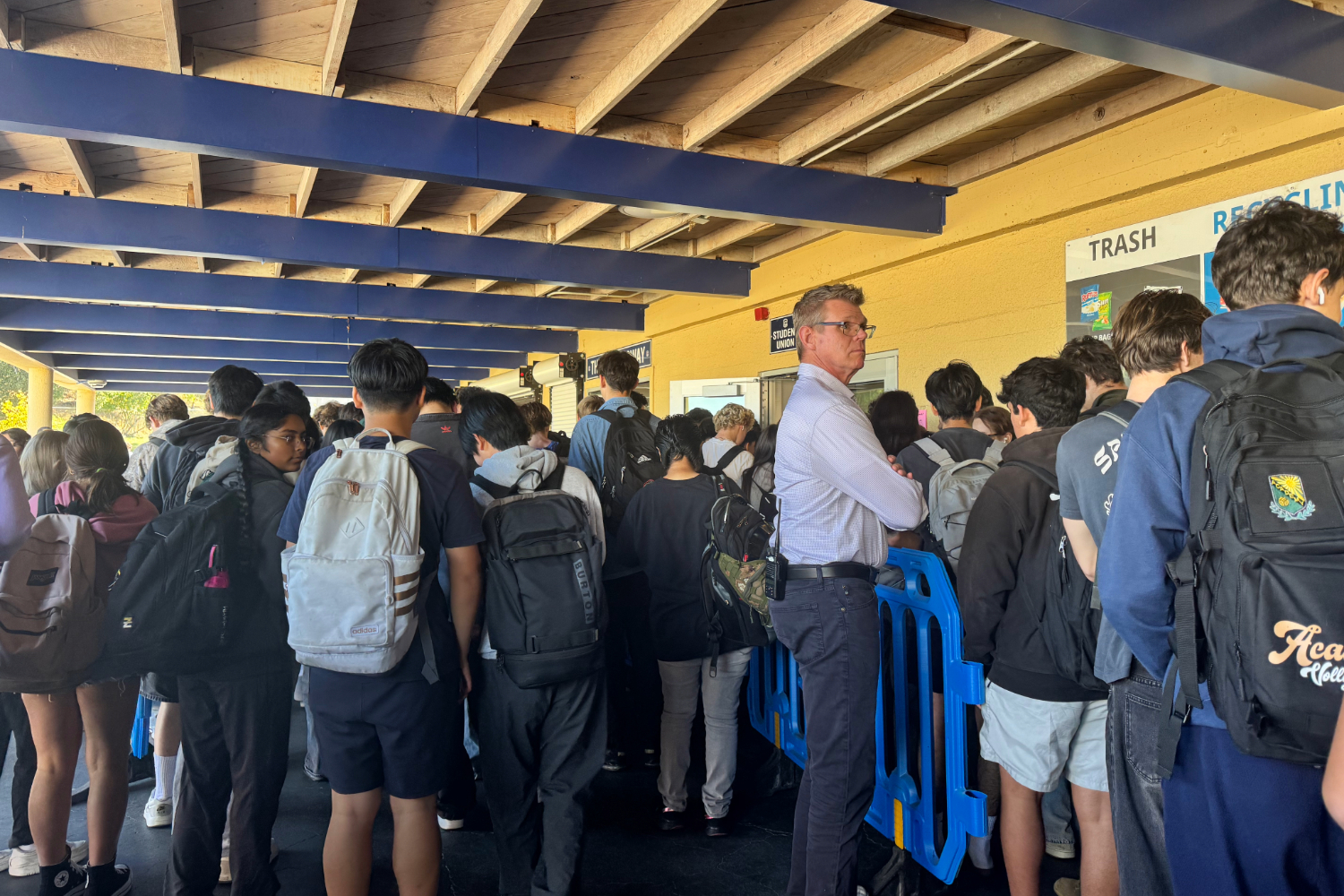Students swarm the lunch line, eager to get their food. However, many students remain unaware of what they put into their body. “In the long term, it builds bad habits of food and variety in their diet which affects them when they grow out of high school. It sets an unhealthy precedent into their adult lives,” said Carlmont student and lunchline worker Riley Fryman.
On Oct. 8, Gov. Gavin Newsom signed Assembly Bill (AB) 1264, which removes ultra-processed foods from California public schools’ breakfasts and lunches.
The law states that by July 1, 2029, schools must phase out ultra-processed foods, and by July 1, 2032, school food vendors will be prohibited from including them in school-provided food.
In 2023, Gov. Newsom signed AB 418 and AB 2316, which remove harmful chemicals from food. In 2024, he signed a legislative package to increase state-assisted food programs, helping students get the nutrition they need during school hours.
“When we overeat foods from a healthy source, like vegetables, beans, or red meat, our body knows what to do with it, and it doesn’t get stuck or cause us to move into a place of being obese or overweight. Our body stores ultra-processed foods because it isn’t sure what to do with them,” said holistic nutritionist Kelly Walker.
According to the bill, in 2035, schools will be fully prohibited from providing ultra-processed foods. However, Sequoia Union High School District (SUHSD) schools have already started offering healthier lunch alternatives.
“
We already have a system where we make people grab a fruit or vegetable with each meal. I feel like Carlmont has some control over it, but at the end, the students themselves have the decision of whether or not they’re going to eat the food they’re given.
— Riley Fryman
“We already have a system where we make people grab a fruit or vegetable with each meal. I feel like Carlmont has some control over it, but at the end, the students themselves have the decision of whether or not they’re going to eat the food they’re given,” said Carlmont student and lunchline worker Riley Fryman.
Ultra-processed foods have become the center of many students’ daily caloric intake. According to the Centers for Disease Control and Prevention, 12 to 18-year-olds get 63% of their total calories from ultra-processed foods. Similarly, according to the National Library of Medicine, children ages three to five get 62.5% of their daily calories from ultra-processed foods.
Calories from ultra-processed foods give students the satisfaction of eating food, but do not provide the right kind of nutrients to fuel their bodies.
“I would like to see more of the food categories included in school lunches, like vegetables, proteins, and fats. Sometimes it’s just a single burger or a single item, and it is only one food group. I think it’s necessary to get the essential nutrients we need, especially because we’re teenagers and still growing,” said sophomore Madison Wu.
AB 1264 follows the Make America Healthy Again initiative, which aims to end childhood chronic disease, another consequence of ultra-processed foods.
Student-athletes require certain macronutrients, like proteins, carbohydrates, and fats, to maintain their energy during practice. According to the Boston Children’s Hospital, poor health and declining athletic performance are caused by the lack of fuel to support their energy demands during the day, which leads to relative energy deficiency. This causes further harm to the body, impacting reproductive health, bone health, and psychological health.
“I’m on the Carlmont Dance Team, and I go to Heartbeat Dance Academy. I have almost two hours of dance every day after school. During dance, when I don’t get a proper lunch, I feel really tired, dizzy, and my stomach hurts, which affects my performance,” Wu said.
For SUHSD schools, there is not enough detail in AB 1264 to fully understand how schools will be affected. Working with nutritionists to eliminate ultra-processed foods and spread awareness may be a solution.
“I find a lot of parents aren’t actually lazy, they just don’t know about ultra-processed foods. They haven’t been taught this, and it’s not a topic that’s necessarily interesting to them, but their kids’ health is. If they’re given a free opportunity to listen in person, it’s a valuable opportunity to enhance their kids’ health through nutrition,” Walker said.
According to American University, students who eat more nutritious meals are more likely to perform better in school. Subsequently, those who pursue higher education are more likely to care about their health and nutrition, leading to fewer health concerns.
“What students put into their bodies now is going to affect how they will end up when they’re older. Health is something that all teenagers should care about,” Wu said.


